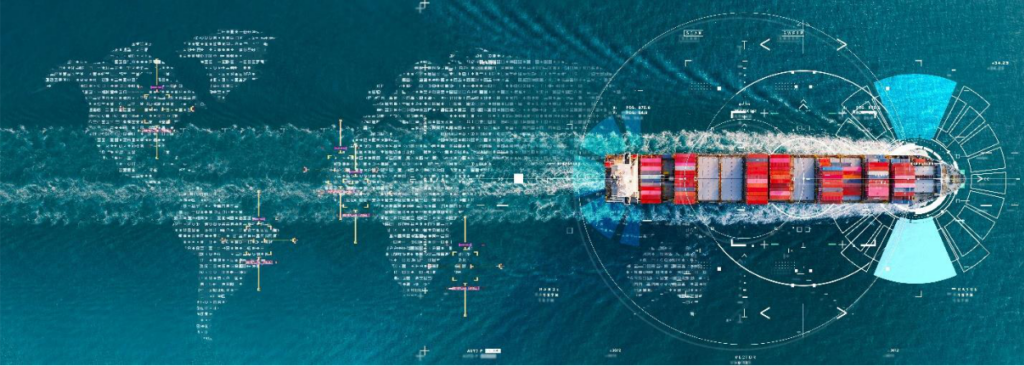
Country Risk Report – April 2024
| GDP (2022) $1.47 Trillion |
| State Department Travel Advisory Level Varies State By State |
126/180 |
| Anti-Money Laundering/Terrorist Financing Governance FATF/GAFILAT/CFATF/GAFIC |
| Property Rights Index 76/125 |
| Freedom House Ranking Partly Free |
Country Risk Report – April 2024
| GDP (2022) | $1.47 Trillion |
| State Department Travel Advisory Level | Varies State By State |
126/180 | |
| Anti-Money Laundering/Terrorist Financing Governance | FATF/GAFILAT/CFATF/GAFIC |
| Property Rights Index | 76/120 |
| Freedom House Ranking | Partly Free |
Mexico is one of the United States’ largest trading partners and export markets.
It receives significant foreign direct investment (FDI) and has become a major manufacturing hub. Its proximity to the North American market, sizeable domestic market, large workforce, and relatively stable economic growth have made it a major destination for foreign businesses and investors.
Although Mexico has served as a reliable hub for FDI, companies and investors face major challenges. Some of the challenges include an often burdensome regulatory environment, corruption, lack of government transparency, organized crime and violence, human migration issues, and reliance on the US market.
2024 marks a significant election year in Mexico. In June, Mexican voters will go to the polls to elect many new local officials, state Senators, representatives in the Chamber of Deputies, and a new president. The results of this major election will dictate politics and legislation in Mexico for the next six years.
Since 2018, Mexico has been governed by President Andres Manuel Lopez Obrador (AMLO) of the MORENA party. The MORENA party has also dominated the state senate and Chamber of Deputies. His preferred successor, Claudia Sheinbaum, currently leads in the polls.
Sheinbaum has stated that if she is elected, she will continue to pursue many of AMLO's policy goals, including fighting corruption and austerity, reducing economic inequality, nearshoring, strengthening the state’s role in the energy market, and fighting organized crime.
One of the most challenging aspects of Mexican politics is its relationship with the United States. Mexico and the United States are inextricably linked in many ways, particularly economically, which requires closely managing US-Mexico relations.
Recently, issues relating to trade, security, and record numbers of migrants on the US-Mexico border have been sources of significant tension between the two governments. The outcomes of presidential elections in both countries this year will be consequential to the type of relationship that will be had between them in the coming years.
Mexico is the second-largest economy in Latin America and one of the United States’ largest trade partners and export markets. It has experienced relatively stable economic growth, averaging 2.1% annual growth between 1994 and 2022.
Despite this, there have been concerns regarding an unpredictable regulatory environment, particularly in the energy industry. The economy relies on the state-owned oil company PEMEX, which has been underperforming recently. The debate over fiscal policy relating to PEMEX is a salient political issue.
Other challenges facing the health of the Mexican economy include investment hesitancy due to corruption and organized crime. The Mexican government has failed to respond coherently to security issues and corruption. AMLO’s approach to this has been controversial and a source of opposition to his government and party.
Surging migration to the US via Mexico has also been a particularly salient political issue affecting its relationship with the US. The health of the relationship between the US and Mexico is essential as changes in US economic policy will directly affect their economy.
In 2017, Mexico, the US, and Canada renegotiated the North American Free Trade Agreement (NAFTA). The new agreement, known as the United States-Mexico-Canada Agreement (USMCA), came into effect in July 2020.
The USMCA is a free trade agreement between the three countries. Its new and revised provisions include the protection of intellectual property rights, addressing environmental and labor concerns, and settling trade disputes.
Mexico is open to foreign investment and has been one of the largest recipients of FDI among emerging markets. Its recently revamped free trade agreement with Canada and the United States (USMCA) reaffirms its importance in the regional and global economy.
Key industries to invest in in Mexico include:
Understanding the regulatory environment in Mexico is important to successfully operating a business there.
The complexity of the regulatory environment varies widely between sectors. Becoming familiar with the regulatory environment specific to one’s industry is essential to ensure compliance. Ongoing reassessment of how regulations affect one’s investment and operational strategy is important, particularly after elections.
Developing strong local partnerships can help navigate the business in the regional context and expand to reach Mexico’s extensive consumer market.
Prioritizing security and risk management is essential to understand and avoid risks associated with corruption, organized crime, cybercrime, and human rights concerns. This is especially important considering stricter enforcement of the FCPA and outbound investment restrictions in the US.
Mexico is party to several free trade agreements, including the USMCA. Understanding these agreements' implications can help leverage opportunities in other global markets.
Deep due diligence is essential to ensure compliance with US laws and regulations regarding doing business in and around Mexico. If your firm operates in the region, it is critical to avoid heightened Foreign Corrupt Practices Act risks.
If entering the region for the first time, you should also conduct a geopolitical risk assessment to ensure that there are no emerging political risk considerations that can impact your firm’s operations.
Want To Know More?
For a deeper review of political, economic, due diligence and security risks for Mexico, please contact us.
Our due diligence investigations help you understand fraud, bribery and corruption issues so your organization can avoid unnecessary risk exposures.
Protecting your corporation’s Board of Directors, shareholders and employees are part of key risk mitigation strategy.
Infortal has screened workforces for Fortune 100 companies, banks, law firms for 30 years including nationwide and international hires.
